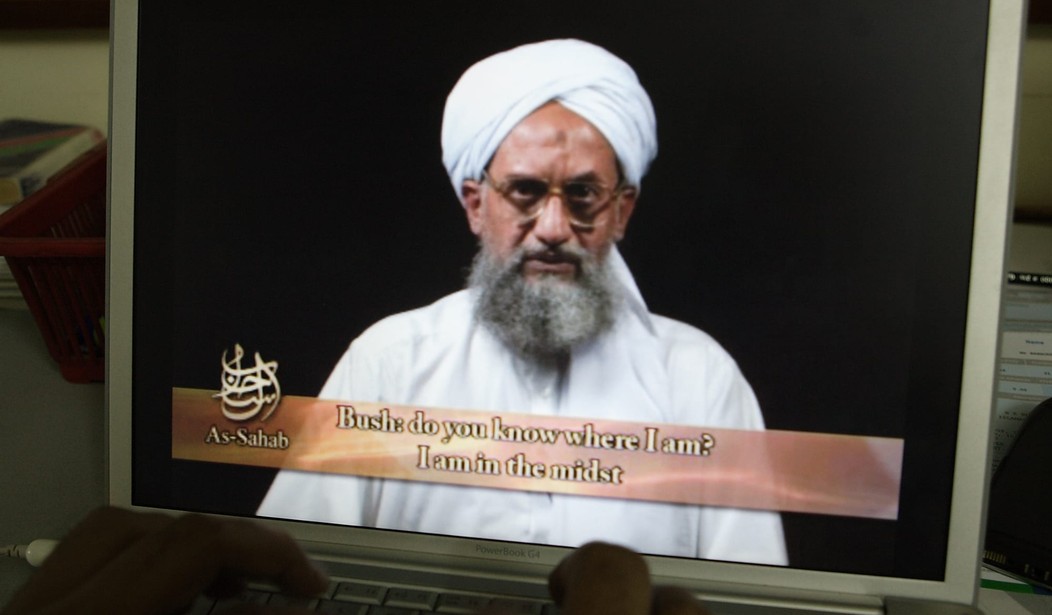A spokesman for U.S. operations in Afghanistan said the ISIS threat there seems to be under control for now, but al-Qaeda has struck up an unsettling “increased relationship” with the Taliban.
There are six groups recognized as foreign terrorist organizations operating out of Afghanistan today, Brig. Gen. Charles Cleveland, deputy chief of staff for communications for Resolute Support Mission, told reporters today via teleconference from Kabul.
The U.S. military “continues to have a mission to disrupt, dismantle and defeat al-Qaeda, and so we do have the authority to target any al-Qaeda member,” Cleveland noted. The authority for U.S. forces to begin targeting ISIS fighters in Afghanistan was added in January.
ISIS refers to the area as their Khorasan Province and has been trying to poach fighters from the Taliban ranks.
Seventy to 80 percent of counterterrorism strikes in Afghanistan this year have targeted ISIS, Cleveland said.
“About three months or so ago, we thought that Daesh was probably in about six to eight districts. Today, we think they’re probably in about two to three districts,” he said.
“And I always hesitate to really kind of give a specific number like that because as soon as I say three districts, somebody pops up someplace else and now they’re in four or five. But at the end of the day, we think that we have significantly decreased the footprint that they have in Afghanistan.”
ISIS has been trying to move into new provinces as a matter of survival, not expanded capacity, he added. They’re seeing some ISIS defectors try to return to the Taliban. “And assuming that all — that that is consistent with things we’re not seeing, we do think that that is an indicator that perhaps they are under pressure.”
Still, ISIS “really does present the potential to be just an enormous threat.”
“Our concern with them is that they’ve got the ability to regenerate very quickly, and they’ve got the ability to catch fire — as we’ve seen in other places,” he said. “So, we think it’s incredibly important just to keep constant pressure on them, and try to get after them at every opportunity we can.”
The Taliban launched their spring offensive, Operation Omari, this week, with the capital of Helmand province, Lashkar Gah, in their crosshairs.
Cleveland said officials “don’t believe” the capital is about to fall, but “Helmand is not a rosy picture right now.”
“And as we see the Taliban really finish the harvesting of the poppy, which, again, should happen in the next week to two weeks, we think that the fighting will really increase,” he said, referring to the opium cash crop that helps fill the pockets of the Islamic Emirate.
“…One of our concerns right now is we are beginning to see more of an increased relationship between al-Qaeda and the Taliban.”
On its own, the general said, officials don’t consider al-Qaeda to be a “tremendous threat” to the Afghan government. “But where they pose the real threat is oftentimes al-Qaeda can serve as an accelerant. And so they’ve got some very special skills, some capabilities. They can go and essentially assist and train the Taliban so that the Taliban is more effective,” he said.
Operation Omari, the Taliban said in their announcement, “will employ large-scale attacks on enemy positions across the country, martyrdom-seeking and tactical attacks against enemy strongholds, and assassination of enemy commanders in urban centers.”
Cleveland said there are an estimated 100 to 300 al-Qaeda in Afghanistan. They’re not fighting with ISIS, whereas the Taliban and ISIS are at each other’s throats.
“There’s core al-Qaeda someplace in the region, again led by Zawahiri running their global efforts,” he said. “And then the most recent franchise from al-Qaeda is al-Qaeda in the Indian Subcontinent, or AQIS. And we do see a bit of a presence from them. And they are probably more of a threat to Afghanistan and certainly Pakistan, India, and Bangladesh, if you will.”
AQIS has been carrying out a months-long assassination campaign against bloggers, activists and writers accused of insulting Islam. Law student Nazimuddin Samad was attacked last week on a street in Bangladesh’s capital by three terrorists wielding machetes.
One of AQIS’ victims in this campaign — blogger Avijit Roy — was a U.S. citizen.
“On the top of al-Qaeda and the way that they’re spread out, what it really does reinforce to us is that going after this terrorism threat really does become a regional issue,” Cleveland told reporters. “And it requires everybody in the region to be focused on it, and everybody in the region to be trying to cut down on these ungoverned spaces where al-Qaeda typically thrives, and everybody to essentially be working together to get after what is a joint problem.”
After visiting the CIA on Wednesday for a meeting with his National Security Council, President Obama said that “even as we work to destroy ISIL, we continue to go after the remnants of al-Qaeda that still pose a significant threat to U.S. interests, our allies and the homeland.”
“We’re sending a message: If you target Americans, you have no safe haven. We will find you,” Obama said.









Join the conversation as a VIP Member